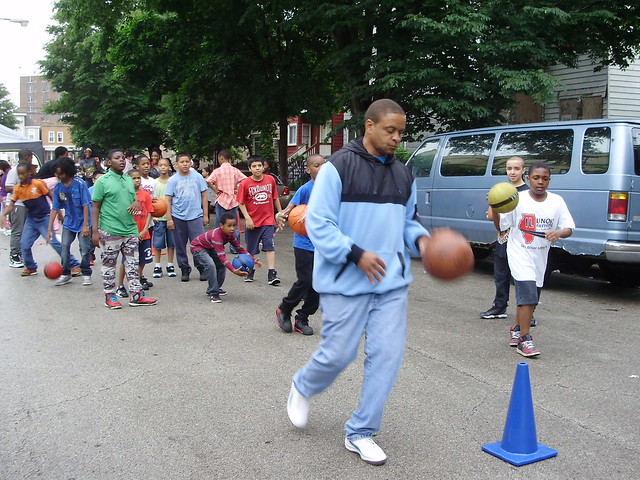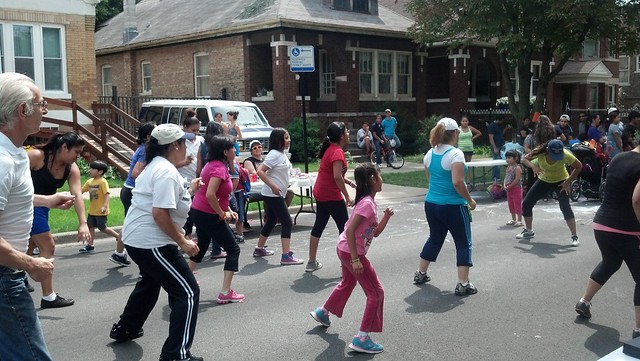Unsafe streets and poor health outcomes are two of the biggest challenges facing residents in Chicago’s low-to-moderate income communities. Launched in 2011, the city’s PlayStreets program addresses both issues by creating car-free spaces for healthy recreation, which also supports crime-prevention efforts. Last year over 26,000 people participated in 140 block party-style events.
This year’s program, which kicked off on June 11, features 150 events -- more than ever before – in 36 neighborhoods, from Roseland to Archer Heights to Rogers Park. Streets are pedestrianized for three or more hours to make room for sports, games, bounce houses, fitness classes, and more. This provides a safe environment for kids to play, and it’s also a chance for adults to get exercise and meet their neighbors.
The program is spearheaded by the Chicago Department of Public Health as a key part of the city’s Healthy Chicago plan, with more than 200 strategies to improve Chicagoans’ wellbeing. The Gads Hill Center, the Active Transportation Alliance, World Sport Chicago and Local Initiatives Support Corporation Chicago are coordinating this year’s PlayStreets events. They’re partnering with dozens of community-based organizations and churches (see the full list here) that are helping to run events in their neighborhoods and spread the word to clients and parishioners.
“PlayStreets is really about taking back public space for physical activity, healthy lifestyles and community building,” said Eric Bjorlin, who manages Active Trans’ school and education programs. “The hope is that these events will help get people active in lots of different ways.”
Gads Hill is running the block parties on the North and West Side, roughly north of I-55, while the other coordinating groups are putting on the events on the South Side. “We’re really the connection between the health department and the community organizations,” Bjorlin said. The coordinating groups work with the local ward offices to make the street closures happen, and provide technical support and training to the community organizations, as well as resources like signs, sporting equipment, t-shirts, and healthy snacks for the participants.
“Every organization puts a different spin on the event to fit the community,” Bjorlin said. Each block party features a number of activities, which might include basketball, soccer, Zumba, dancing, hula hoops, jump ropes, and street games. Local groups that address issues like housing and immigration also do outreach at some of the block parties.
“Play Streets is about bringing people together in a way that doesn’t happen a lot, but should,” Bjorlin said. “Getting residents to know that they could have and should have access to safe public spaces can be a very empowering thing for the community.”





